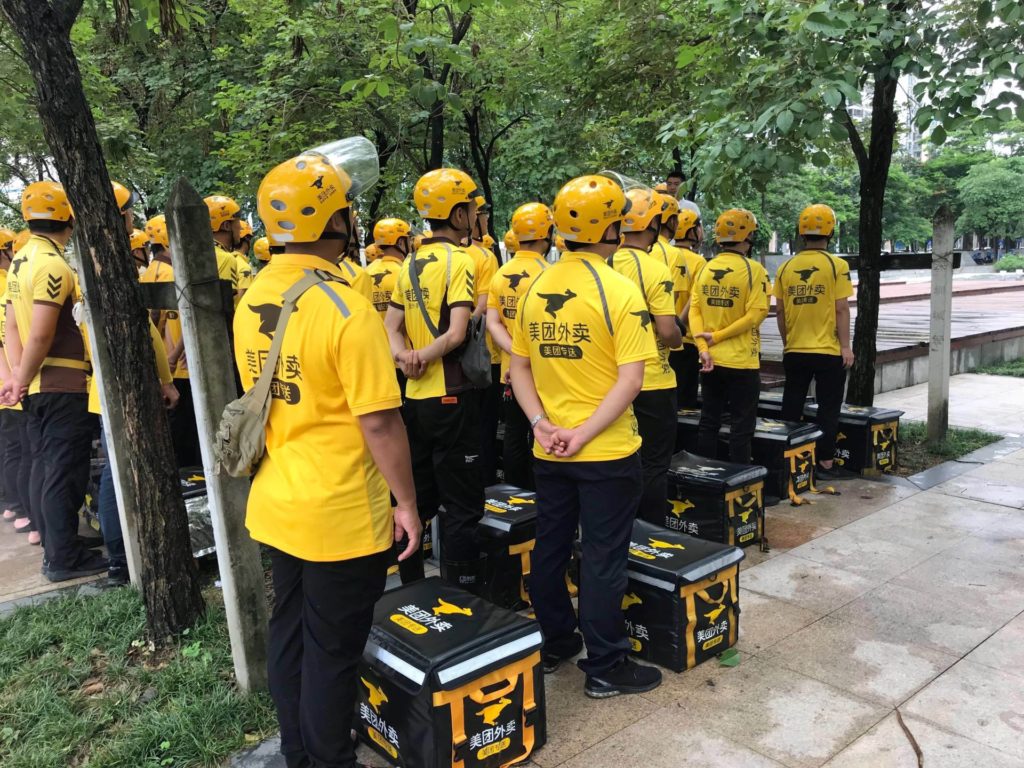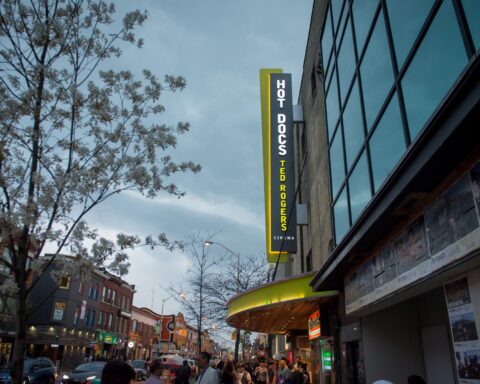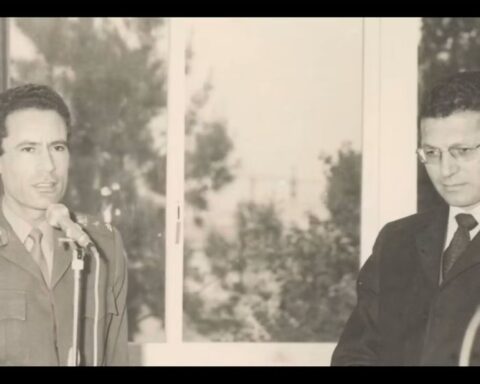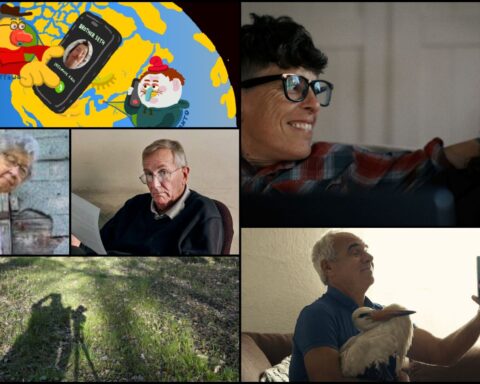Behind your favourite app is an army of invisible workers. Drivers and delivery services ensure we get our food on time and that we’re never late for a meeting. In countries worldwide, gig workers, often working for pennies, ensure our search results are accurate, thumbnails are appropriate, and translations are smooth and conversational. These mostly unseen people, often called shadow or ghost workers, are the backbones of most tech companies. They are the essential human element filling in to close the gap between man and machine, stepping up to complete tasks that computers are unable to complete.
With her latest documentary, The Gig Is Up, Shannon Walsh examines the people behind tech’s life and work, focusing on low-wage gig workers who ensure modern life runs smoothly. From America to Nigeria, she explores the working life of this ever-growing economy of workers, delving into their day-to-day jobs and their dreams for a better and more equitable future.
Bolstered by expert talking heads, the documentary paints a portrait of current conditions while imagining a better future. Avoiding obvious technophobic tropes and retrograde solutions, The Gig Is Up accepts that the landscape of work has changed. “We can’t go back to the 9-to-5,” explains Walsh. And that’s not necessarily a bad thing.

Many of the featured jobs are familiar: delivery and rideshare workers zip around on bikes and cars. They’ve become part of the fabric of our cities. Digging a little deeper, however, Walsh’s film unveils another kind of gig work that anthropologist Mary L. Gray and computer scientist Siddharth Suri have dubbed Ghost Work. Through massive platforms like Amazon’s Mechanical Turk (a reference to an 18th-century chess-playing machine that a human secretly powered), people all over the world complete micro-tasks 24 hours a day. These people often work for pennies doing quick translations, flagging inappropriate content, proofreading, and more.
The actual freedom and flexibility these jobs offer, however, are an illusion. When a new app rides into town, it provides low prices for customers and workers’ wages. As time goes on, it often pays less and less to drivers until they can no longer make a living. It becomes increasingly difficult for those doing shadow work to log off. They begin working longer and longer hours, often for the same or less pay. Paramount to Walsh’s vision is the need for stricter labour protections.
Many of the film’s subjects are labour advocates, fighting for rights and protections. In Paris, Leila Ouadad does deliveries for UberEats and Deliveroo. She’s also fighting for the safety of delivery workers in Paris; they are underpaid and unprotected, and the company takes little responsibility for the job’s dangers. In San Francisco, Al Aloudi, an Uber and Lyft driver, is similarly fighting for employee rights, as drivers are considered freelance workers with no fundamental rights or protections. In the shadow of the companies’ increased wealth and power, individual workers feel exploited and left behind.
This perspective is no accident. The work’s precariousness often means people are unwilling to speak out against their conditions, and for Walsh, connecting with and centring narratives on advocates for workers’ rights has paid off in the past. Many of Walsh’s previous films, like Illusions of Control, Jeppe on a Friday, and À St-Henri, le 26 août focus on collective rather than individual experience. These films document days in the lives and changing faces of communities in the face of globalization and gentrification.
Working with labour rights advocates helps solve the ethical question of putting workers in dangerous situations. Advocates are not only well-spoken, but they are also aware of the risk of speaking out. It centres the narrative around people doing the job, who have considered the risks and are actively fighting for solutions. It allows for the documentary subject to be an active rather than passive participant in the story.

The filmmakers used the Mechanical Turk website to find other subjects. We meet people like Jason Edwards, who lives and cares for his mother in Mims, Florida. Immediately striking, with a mouth filled with real gold teeth, Edwards has a keen understanding of the ins and outs in the algorithmic process. “There are human intelligence tasks,” he explains. “They’re jobs that can’t be completed by a computer.” That’s when workers like Jason step in.
For someone like Jason Edwards, Mechanical Turk has allows him to find legal work. As a felon in small-town America, his options are limited. Being able to stay at home and care for his mother is a bonus. He can stay close to her and adjust his schedule to accommodate her needs. Walsh further explains that, in an increasingly technological world, “there will always be a need for people to translate the human experience into computational terms. We have to make this type of work visible because it’s not going away.”
These essential workers fill in the gaps, and the tech companies have a vested interest in keeping them invisible. “We want to believe the illusion that AI and technology are working seamlessly,” says Walsh. “The tech industry has spent a lot of energy in embracing this idea because it means something different when you know a person is, for example, sorting through your Google search questions to figure out how to categorize what’s important.”
This type of work emerges wherever the cracks in the system occur. “In many ways, it’s no different than precarious piecemeal work since the dawn of capitalism,” Walsh explains. Many of these workers struggle to find stable work; they have disabilities, are felons, caregivers, and refugees. In some cases, it’s the only work they can do. However, many choose this type of work for its flexibility and ability to be done at home.

Subtitled “A very human tech doc,” The Gig Is Up concentrates on the human experience. Its focus means that the subjects speak to their own lives, their dreams, hopes and disappointments. Influenced by cinéma vérité traditions, Walsh tries to meet people where they’re at and follow them through morning routines and their workdays, be it seated at a computer or biking down a busy Parisian road. The faithfulness to their experiences humanizes their work and struggle.
Almost immediately, Walsh faced a conundrum; the gig economy was bad for workers, but talking to people made apparent that her subjects had reasons for working these jobs. Walsh rises to the task, demonstrating that this type of work could represent a hopeful future if we step up sooner than later. “We need to fight for conditions that are livable and human,” she says. The solution isn’t just deleting the apps and pretending the problem does not exist.
Even if they had a choice, many of her subjects would not return to the 9-to-5 grind working in an office for a boss they hate. The gig economy represents the possibility of a better and more balanced life: it’s just that the promise remains unfulfilled. “We need to [focus] first and foremost on what the workers are saying and what they need.”
Walsh ultimately hopes that The Gig Is Up showcases the people’s dignity doing these jobs, allowing us to hear them for what they have to say. She hopes it spurs crucial conversations, where workers’ value and humanity become central to the discussion. As hard as some of these companies work to flatten or erase their workforce’s humanity, The Gig Is Up fights to have them heard.
The Gig Is Up screens at Hot Docs 2021 and opens DOXA 2021.
Visit the POV Hot Docs Hub for more coverage from this year’s festival.













